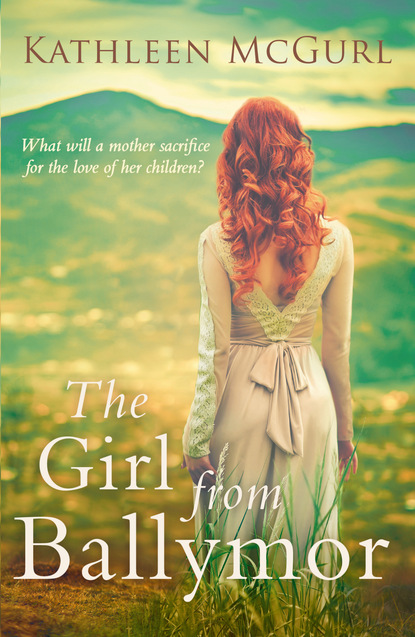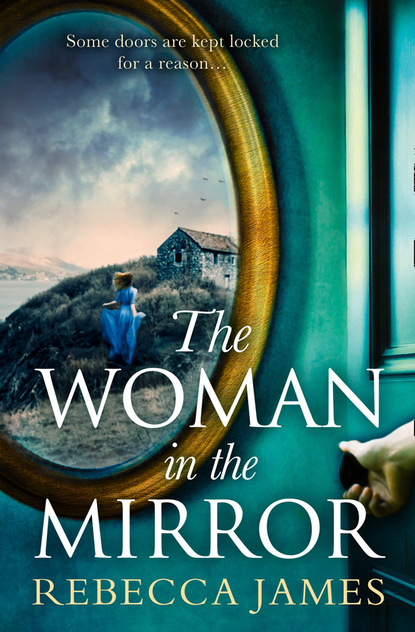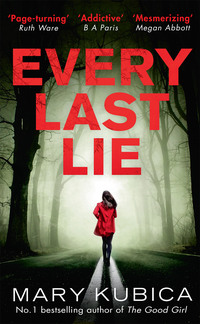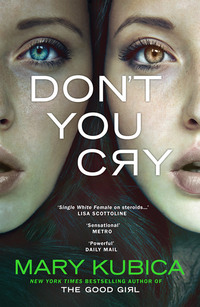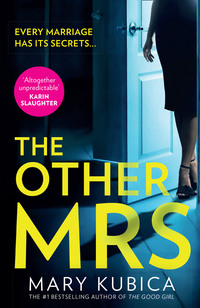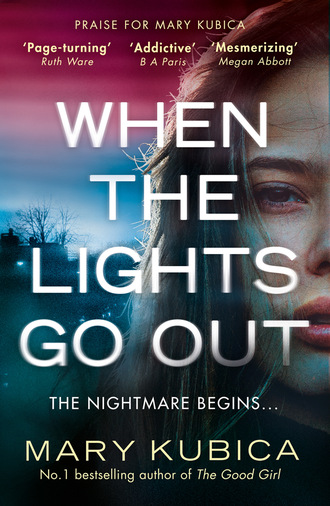
Полная версия
When The Lights Go Out

A woman is forced to question her own identity in this riveting and emotionally charged thriller by the blockbuster bestselling author of The Good Girl, Mary Kubica
Jessie Sloane is on the path to rebuilding her life after years of caring for her ailing mother. She rents a new apartment and applies for college. But when the college informs her that her social security number has raised a red flag, Jessie discovers a shocking detail that causes her to doubt everything she’s ever known.
Finding herself suddenly at the center of a bizarre mystery, Jessie tumbles down a rabbit hole, which is only exacerbated by grief and a relentless lack of sleep. As days pass and the insomnia worsens, it plays with Jessie’s mind. Her judgment is blurred, her thoughts are hampered by fatigue. Jessie begins to see things until she can no longer tell the difference between what’s real and what she’s only imagined.
Meanwhile, twenty years earlier and two hundred and fifty miles away, another woman’s split-second decision may hold the key to Jessie’s secret past. Has Jessie’s whole life been a lie or have her delusions gotten the best of her?
MARY KUBICA holds a Bachelor of Arts degree in History and American Literature from Miami University in Oxford, Ohio. She lives near Chicago with her husband and two children.
Also by Mary Kubica
The Good Girl
Pretty Baby
Don’t You Cry
Every Last Lie
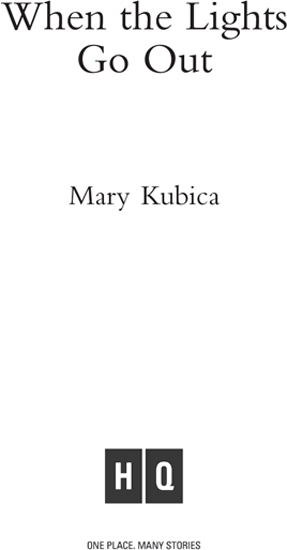
Copyright

An imprint of HarperCollins Publishers Ltd
1 London Bridge Street
London SE1 9GF
First published in Great Britain by HQ in 2018
Copyright © Mary Kyrychenko 2018
Mary Kyrychenko asserts the moral right to be identified as the author of this work.
A catalogue record for this book is available from the British Library.
This novel is entirely a work of fiction. The names, characters and incidents portrayed in it are the work of the author’s imagination. Any resemblance to actual persons, living or dead, events or localities is entirely coincidental.
All rights reserved under International and Pan-American Copyright Conventions. By payment of the required fees, you have been granted the non-exclusive, non-transferable right to access and read the text of this e-book on-screen. No part of this text may be reproduced, transmitted, downloaded, decompiled, reverse engineered, or stored in or introduced into any information storage and retrieval system, in any form or by any means, whether electronic or mechanical, now known or hereinafter invented, without the express written permission of HarperCollins.
Ebook Edition © August 2018 ISBN: 9781474057622
Praise for Mary Kubica
‘Brilliant, intense, and utterly addictive. Be prepared to run a gauntlet of emotions!’
B A Paris
‘Grabs you from the moment it starts’
Daily Mail
‘Gets right under your skin and leaves its mark. A tremendous read’
The Sun
‘Sensational’
Metro
‘Perfect suspense’
BuzzFeed
‘Fans of Gone Girl will embrace this’
Lisa Gardner
‘An utterly mesmerising tale of marriage and secrets… it’ll have you rapt until its final pages’
Megan Abbott
‘Single White Female on steroids’
Lisa Scottoline
For
Dick & Eloise
Rudy & Myrtle
Contents
Cover
Back Cover Text
About the Author
Booklist
Title Page
Copyright
Praise
Dedication
prologue
jessie
eden
jessie
eden
jessie
eden
jessie
eden
jessie
eden
jessie
eden
jessie
eden
jessie
eden
jessie
eden
jessie
eden
jessie
eden
jessie
eden
jessie
eden
jessie
eden
jessie
eden
jessie
eden
jessie
eden
eden
jessie
eden
jessie
eden
acknowledgments
About the Publisher
prologue
The city surrounds me. A panorama. With arms outstretched, I can’t help but spin, taking it all in. Enjoying the view, knowing fully well this may be the last thing my eyes ever see.
I stare at the four metal steps before me, aware of how frail and broken-down they look. They’re orange with rust, paint flaking, some of the slats loose so that when I press my foot to the first step, it buckles beneath me and I fall.
Still, I have no choice but to climb.
I pull myself back up, set my hands on the rails and scale the steps. The sweat bleeds from my palms so that the metal beneath them is slippery, slick. I can’t hold tight. I slip from the second step, try again. I call out, voice cracking, a voice that doesn’t sound like mine.
As I reach the roof’s ledge, my knees give. It takes everything I have not to topple over the edge of the building and onto the street below. Seventeen floors.
I’m so high I could touch the clouds, I think. The sense of vertigo is overpowering. The ground whooshes up and at me, the skyscrapers, the trees starting to sway until I no longer know what’s moving: them or me. Little yellow matchbooks soar up and down the city streets. Cabs.
If I was standing at street level, the ledge would feel plenty wide. But up here it’s not. Up here it’s a thread and on it, I’m trying to balance my two wobbly feet.
I’m scared. But I’ve come this far. I can’t go back.
There’s a moment of calm that comes and goes so quickly I almost don’t notice it. For one split second the world is still. I’m at peace. The sun moves higher and higher into the sky, yellow-orange glaring at me through the buildings, making me peaceful and warm. My hands rise beside me as a bird goes soaring by. As if my hands are wings, I think in that moment what it would be like to fly.
And then it comes rushing back to me.
I’m hopelessly alone. Everything hurts. I can no longer think straight; I can no longer see straight; I can no longer speak. I don’t know who I am anymore. If I am anyone.
And I know in that moment for certain: I am no one.
I think what it would feel like to fall. The weightlessness of the plunge, of gravity taking over, of relinquishing control. Giving up, surrendering to the universe.
There’s a flicker of movement beneath me. A flash of brown, and I know that if I wait any longer, it will be too late. The decision will no longer be mine. I cry out one more time.
And then I go.
jessie
I don’t have to see myself to know what I look like.
My eyes are fat and bloated, so bloodshot the sclera is bereft of white. The skin around them is red and raw from rubbing. They’ve been like this for days. Ever since Mom’s body began shutting down, her hands and feet cold, blood no longer circulating there. Since she began to drift in and out of consciousness, refusing to eat. Since she became delirious, speaking of things that aren’t real.
Over the last few days, her breathing has changed too, becoming noisier and unstable, developing what the doctor called Cheyne-Stokes respiration where, for many seconds at a time, she didn’t breathe. Short, shallow breaths followed by no breaths at all. When she didn’t breathe, I didn’t breathe. Her nails are blue now, the skin of her arms and legs blotchy and gray. “It’s a sign of imminent death,” the doctor said only yesterday as he set a firm hand on my shoulder and asked if there was someone they could call, someone who could come sit with me until she passed.
“It won’t be long now,” he’d said.
I had shaken my head, refusing to cry. It wasn’t like me to cry. I’ve sat in the same armchair for nearly a week now, in the same rumpled clothes, leaving only to collect coffee from the hospital cafeteria. “There’s no one,” I said to the doctor. “It’s only Mom and me.”
Only Mom and me as it’s always been. If I have a father somewhere out there in the world, I don’t know a thing about him. Mom didn’t want me to know anything about him.
And now this evening, Mom’s doctor stands before me again, taking in my bloated eyes, staring at me in concern. This time offering up a pill. He tells me to take it, to go lie down in the empty bed beside Mom’s and sleep.
“When’s the last time you’ve slept, Jessie?” he asks, standing there in his starch white smock, tacking on, “I mean, really slept,” before I can lie. Before I can claim that I slept last night. Because I did, for a whole thirty minutes, at best.
He tells me the longest anyone has gone without sleep. He tells me that people can die without sleep. He says to me, “Sleep deprivation is a serious matter. You need to sleep,” though he’s not my doctor but Mom’s. I don’t know why he cares.
But for whatever reason, he goes on to list for me the consequences of not sleeping. Emotional instability. Crying and laughing for no sound reason at all. Behaving erratically. Losing concept of time. Seeing things. Hallucinating. Losing the ability to speak.
And then there are the physical effects of insomnia: heart attack, hypothermia, stroke.
“Sleeping pills don’t work for me,” I tell him, but he shakes his head, tells me that it’s not a sleeping pill. Rather a tranquilizer of some sort, used for anxiety and seizures. “It has a sedative effect,” he says. “Calming. It will help you sleep without all the ugly side effects of a sleeping pill.”
But I don’t need to sleep. What I need instead is to stay awake, to be with Mom until she makes the decision to leave.
I push myself from my chair, strut past the doctor standing in the doorway. “Jessie,” he says, a hand falling gently to my arm to try and stop me before I can go. His smile is fake.
“I don’t need a pill,” I tell him briskly, plucking my arm away. My eyes catch sight of the nurse standing in the hallway beside the nurses’ station, her eyes conveying only one thing: pity. “What I need is coffee,” I say, not meeting her eye as I slog down the hallway, feet heavy with fatigue.
* * *
There’s a guy I see in the cafeteria every now and then, a little bit like me. A weak frame lost inside crumpled-up clothes; tired, red eyes but doped up on caffeine. Like me, he’s twitchy. On edge. He has a square face; dark, shaggy hair; and thick eyebrows that are sometimes hidden behind a pair of sunglasses so that the rest of us can’t see he’s been crying. He sits in the cafeteria with his feet perched on a plastic chair, a red sweatshirt hood pulled over his head, sipping his coffee.
I’ve never talked to him before. I’m not the kind of girl that cute guys talk to.
But tonight, for whatever reason, after I get my cup of coffee, I drop down into the chair beside him, knowing that under any other circumstance, I wouldn’t have the nerve to do it. To talk to him. But tonight I do, mostly, I think, to delay going back to Mom’s room, to give the doctor his chance to examine her and leave.
“Want to talk about it?” I ask, and at first his look is surprised. Incredulous, even. His gaze rises up from his own coffee cup and he stares at me, his eyes as blue as a blue morpho butterfly’s wings.
“The coffee,” he says after some time, pushing his cup away. “It tastes like shit,” he tells me, as though that’s the thing that’s bothering him. The only thing. Though I see well enough inside the cup to know that he drank it down to the dregs, so it couldn’t have been that bad.
“What’s wrong with it?” I ask, sipping from my cup. It’s hot and so I peel back the plastic lid and blow on it. Steam rises to greet me as I try again and take another sip. This time, I don’t burn my mouth.
There’s nothing wrong with the hospital’s coffee. It’s just the way I like it. Nothing fancy. Just plain old coffee. But still, I dump four packets of Equal in and swirl it around because I don’t have a stir stick or spoon.
“It’s weak and there are grounds in it,” he tells me, giving his abandoned cup the stink eye. “I don’t know,” he says, shrugging. “Guess I just like my coffee stronger than this.”
And yet, he reaches again for the cup before remembering there’s nothing left in it.
There’s an anger in his demeanor. A sadness. It doesn’t have anything to do with the coffee. He just needs something to take his anger out on. I see it in his blue eyes, how he wishes he was somewhere else, anywhere else but here.
I too want to be anywhere else but here.
“My mother’s dying,” I tell him, looking away because I can’t stand to stare into his eyes when I say the words aloud. Instead I gaze toward a window where outside the world has gone black. “She’s going to die.”
Silence follows. Not an awkward silence, but just silence. He doesn’t say he’s sorry because he knows, like me, that sorry doesn’t mean a thing. Instead, after a minute or two, he says that his brother’s been in a motorcycle accident. That a car cut him off and he went flying off the bike, headfirst, into a utility pole.
“There’s no saying if he’ll make it,” he says, talking in euphemisms because it’s easier that way than just saying there’s a chance he’ll die. Kick the bucket. Croak. “Odds are good we’ll have to pull the plug sometime soon. The brain damage.” He shakes his head, picks at the skin around his fingernails. “It’s not looking good,” he tells me, and I say, “That sucks,” because it does.
I rub at my eyes and he changes topics. “You look tired,” he tells me, and I admit that I can’t sleep. That I haven’t been sleeping. Not for more than thirty minutes at a time, and even that’s being generous. “But it’s fine,” I say, because my lack of sleep is the least of my concerns.
He knows what I’m thinking.
“There’s nothing more you can do for your mom,” he says. “Now you’ve got to take care of you. You’ve got to be ready for what comes next. You ever try melatonin?” he asks, but I shake my head and tell him the same thing I told Mom’s doctor.
“Sleeping pills don’t work for me.”
“It’s not a sleeping pill,” he says as he reaches into his jeans pocket and pulls out a handful of pills. He slips two tablets into the palm of my hand. “It’ll help,” he says to me, but any idiot can see that his own eyes are bloodshot and tired. It’s obvious this melatonin didn’t help him worth shit. But I don’t want to be rude. I slip the tablets into the pocket of my own jeans and say thanks.
He stands from the table, chair skidding out from beneath him, and says he’ll be right back. I think that it’s an excuse and that he’s going to take the opportunity to split. “Sure thing,” I say, looking the other way as he leaves. Trying not to feel sorry for myself as I’m hit with that sudden sense of being alone. Trying not to think about my future, knowing that when Mom finally dies, I’ll be alone forever.
He’s gone now and I watch other people in the cafeteria. New grandparents. A group of people sitting at a round table, laughing. Talking about old times, sharing memories. Some sort of hospital technician in blue scrubs eating alone. I reach for my now-empty cup of coffee, thinking that I too should split. Knowing that the doctor is no doubt done with Mom by now, and so I should get back to her.
But then the guy comes back. In his hands are two fresh cups of coffee. He returns to his chair and states the obvious. “Caffeine is the last thing either of us needs,” he tells me, saying that it’s decaf, and it occurs to me then that this has nothing to do with the coffee, but rather the company.
He digs into his pocket and pulls out four rumpled packets of Equal, dropping them to the table beside my cup. I manage a thanks, flat and mumbled to hide my surprise. He was watching me. He was paying attention. No one ever pays attention to me, aside from Mom.
Beside me he hoists his feet back onto the empty seat across from him, crosses them at the ankles. Drapes the red hood over his head.
I wonder what he’d be doing right now if he wasn’t here. If his brother hadn’t been in that motorcycle accident. If he wasn’t close to dying.
I think that if he had a girlfriend, she’d be here, holding his hand, keeping him company. Wouldn’t she?
I tell him things. Things I’ve never told anyone else. I don’t know why. Things about Mom. He doesn’t look at me as I talk, but at some imaginary spot on the wall. But I know he’s listening.
He tells me things too, about his brother, and for the first time in a while, I think how nice it is to have someone to talk to, or to just share a table with as the conversation in time drifts to quiet and we sit together, drinking our coffees in silence.
* * *
Later, after I return to Mom’s room, I think about him. The guy from the cafeteria. After the hospital’s hallway lights are dimmed and all is quiet—well, mostly quiet save for the ping of the EKG in Mom’s room and the rattle of saliva in the back of her throat since she can no longer swallow—I think about him sitting beside his dying brother, also unable to sleep.
In the hospital, Mom sleeps beside me in a drug-induced daze, thanks to the steady drip, drip, drip of lorazepam and morphine into her veins, a solution that keeps her both pain-free and fast asleep at the same time.
Sometime after nine o’clock, the nurse stops by to turn Mom one last time before signing off for the night. She checks her skin for bedsores, running a hand up and down Mom’s legs. I’ve got the TV in the room turned on, anything to drown out that mechanical, metallic sound of Mom’s EKG, one that will haunt me for the rest of my life. It’s one of those newsmagazine shows—Dateline, 60 Minutes, I don’t know which—the one thing that was on when I flipped on the TV. I didn’t bother channel surfing; I don’t care what I watch. It could be home shopping or cartoons, for all I care. It’s just the noise I need to help me forget that Mom is dying. Though, of course, it isn’t as easy as that. There isn’t a thing in the world that can make me forget. But for a few minutes at least, the news anchors make me feel less alone.
“What are you watching?” the nurse asks, examining Mom’s skin, and I say, “I don’t even know.”
But then we both listen together as the anchors tell the story of some guy who’d assumed the identity of a dead man. He lived for years posing as him, until he got caught.
Leave it to me to watch a show about dead people as a means of forgetting that Mom is dying.
My eyes veer away from the TV and to Mom. I mute the show. Maybe the repetitive ping of the EKG isn’t so bad after all. What it says to me is that Mom is still alive. For now.
Ulcers have already formed on her heels and so she lies with feet floating on air, a pillow beneath her calves so they can’t touch the bed. “Feeling tired?” the nurse asks, standing in the space between Mom and me. I am, of course, feeling tired. My head hurts, one of those dull headaches that creeps up the nape of the neck. There’s a stinging pain behind my eyes too, the kind that makes everything blur. I dig my palms into my sockets to make it go away, but it doesn’t quit. My muscles ache, my legs restless. There’s the constant urge to move them, to not sit still. It gnaws at me until it’s all I can think about: moving my legs. I uncross them, stretch them out before me, recross my legs. For a whole thirty seconds it works. The restlessness stops.
And then it begins again. That prickly urge to move my legs.
If I let it, it’ll go on all night until, like last night, when I finally stood and paced the room. All night long. Because it was easier than sitting still.
I think then about what the guy in the cafeteria said. About taking care of myself, about getting ready for what comes next. I think about what comes next, about Mom’s and my house, vacant but for me. I wonder if I’ll ever sleep again.
“Doc left some clonazepam for you,” the nurse says now, as if she knows what I’m thinking. “In case you changed your mind.” She says that it could be our little secret, hers and mine. She tells me Mom is in good hands. That I need to take care of myself now, again just like the guy in the cafeteria said.
I relent. If only to make my legs relax. She steps from the room to retrieve the pills. When she returns, I climb onto the empty bed beside Mom and swallow a single clonazepam with a glass of water and sink beneath the covers of the hospital bed. The nurse stays in the room, watching me. She doesn’t leave.
“I’m sure you have better things to do than keep me company,” I tell her, but she says she doesn’t.
“I lost my daughter a long time ago,” she says, “and my husband’s gone. There’s no one at home waiting for me. None other than the cat. If it’s all right with you, I’d rather just stay. We can keep each other company, if you don’t mind,” she says, and I tell her I don’t mind.
There’s an unearthly quality to her, ghostlike, as if maybe she’s one of Mom’s friends from her dying delusions, come to visit me. Mom had begun to talk to them the last time she was awake, people in the room who weren’t in the room, but who were already dead. It was as if Mom’s mind had already crossed over to the other side.
The nurse’s smile is kind. Not a pity smile, but authentic. “The waiting is the hardest part,” she tells me, and I don’t know what she means by it—waiting for the pill to kick in or waiting for Mom to die.
I read something once about something called terminal lucidity. I didn’t know if it’s real or not, a fact—scientifically proven—or just some superstition a quack thought up. But I’m hoping it’s real. Terminal lucidity: a final moment of lucidity before a person dies. A final surge of brainpower and awareness. Where they stir from a coma and speak one last time. Or when an Alzheimer’s patient who’s so far gone he doesn’t know his own wife anymore wakes up suddenly and remembers. People who have been catatonic for decades get up and for a few moments, they’re normal. All is good.
Except that it’s not.
It doesn’t last long, that period of lucidity. Five minutes, maybe more, maybe less. No one knows for sure. It doesn’t happen for everyone.
But deep inside I’m hoping for five more lucid moments with Mom.
For her to sit up, for her to speak.
“I’m not tired yet,” I confess to the nurse after a few minutes, sure this is a waste of time. I can’t sleep. I won’t sleep. The restlessness of my legs is persistent, until I have no choice but to dig the melatonin out of my pocket when the nurse turns her back and swallow those too.
The hospital bed is pitted, the blankets abrasive. I’m cold. Beside me, Mom’s breathing is dry and uneven, her mouth gaping open like a robin hatchling. Scabs have formed around her lips. She jerks and twitches in her sleep. “What’s happening?” I ask the nurse, and she tells me Mom is dreaming.



